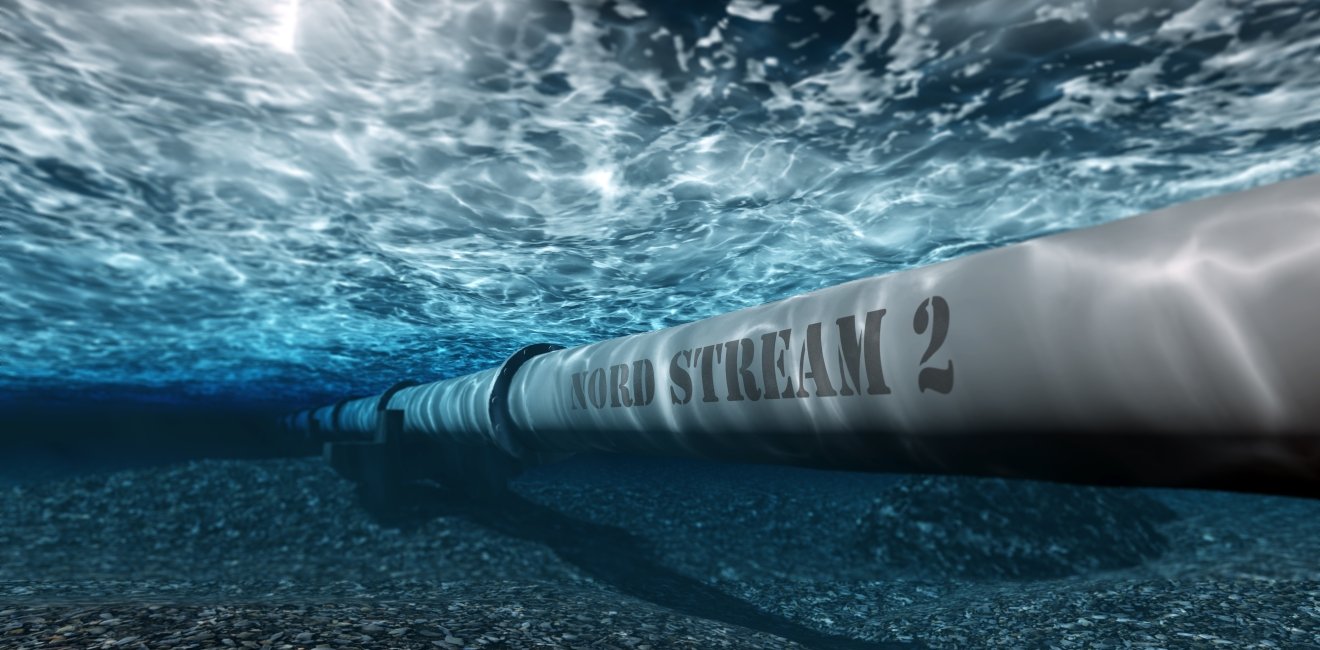
A blog of the Kennan Institute
BY MARK TEMNYCKY
On May 19, the Biden administration announced that it would waive additional sanctions on Nord Stream 2 AG and its CEO. In other words, additional sanctions against European companies would not be implemented.
Even though U.S. President Joe Biden had previously stated that the pipeline was a “bad deal for Europe,” his decision to ease sanctions has caused confusion and alarm among Congress and America’s allies.
When asked about Nord Stream 2, U.S. Secretary of State Antony Blinken shared that the pipeline’s completion was “fait accompli.” He added, however, that agreements were in place “to come back on any activities by Russia that are challenging the [national] security or economic security” of Central and Eastern European states.
To date, 95 percent of the pipeline has been completed. At this rate, Russian officials believe that the project will be finished by the end of 2021. (Russian President Vladimir Putin has said that the first stage, the laying of the first line of the pipeline, has been completed.) The pipeline is also fully funded, meaning Russia will do everything it can to ensure the pipeline is built.
Insofar as additional sanctions have not been implemented, Russia now has the ability to complete its controversial project. The Russians will also hope to fill the pipeline “within a few months.” This has set Polish and Ukrainian leaders on high alert, as a completed pipeline would pose many problems for the European continent.
Several U.S. and European government officials, civil servants, policy experts, and journalists, including this author, have argued that a completed Nord Stream 2 would have severe consequences for Europe. Should the pipeline be built, Europe would become heavily reliant on Russian gas. Nord Stream 2 would also make the current Ukrainian-Polish pipeline obsolete, meaning the Poles and Ukrainians would lose a substantial amount of revenue. Finally, Europe’s subsequent energy dependence on Russia would allow that country to further meddle in the affairs of Poland, Ukraine, and others in the region.
Time is running out to cancel the project. While opponents should continue to do everything in their power to stop the construction of the pipeline, it appears that Nord Stream 2’s completion is unstoppable. Central and Eastern Europe must be prepared for this eventuality.
Preparing for an Operational Nord Stream 2
Despite the pushback from the international community, Germany has been persistent about the project. Berlin is determined to complete Nord Stream 2. This recklessness will endanger the national security of the European continent, particularly that of Central and Eastern Europe. Given that the Germans were the architects of this project, they must be held accountable for its consequences. The EU and the United States should put pressure on Germany to adequately compensate those affected by the pipeline. Indeed, Germany has already started to hold these discussions with Poland and Ukraine.
How might Germany compensate Poland and Ukraine to ease the impact of Nord Stream 2? First, Germany should work with these countries to negotiate the flow of Russian gas. Currently, Ukraine’s gas contract with Russia expires in 2024. If the Russians were to complete Nord Stream 2, it is unlikely that Moscow would want to renew its deal with Ukraine. The Poles and Ukrainians, however, could argue that their pipeline would present Russia with an additional source of revenue. In other words, pumping gas through Nord Stream 2 and the current Ukrainian-Polish pipeline would double Russia’s revenue. While it is not a great outcome, this arrangement would allow Poland and Ukraine to continue earning funds from the transit of Russian gas via the Ukrainian-Polish pipeline.
Second, Germany could help Poland and Ukraine find alternative sources of fuel. For example, Poland is aiming to “increase its recoverable gas reserves … by using artificial intelligence.” Similarly, Ukraine is exploring methods to tap into its energy reserves. If Poland and Ukraine were to further consider these methods, Germany should help finance these projects. Investing in these infrastructural initiatives would help ease Poland’s and Ukraine’s dependence on Russian gas, and it would help them earn revenue from an alternative source.
Third, Germany must continue to support the territorial integrity of Poland and Ukraine. The Germans must stress that these two countries are important to Europe’s national security. Germany could expand on this notion by enhancing its economic relationship with Poland. Germany should also support Ukraine in its fight against corruption. To date, Germany has provided Ukraine with over €1 billion in financial aid. In addition, Germany could provide military assistance to Ukraine as that Eastern European state continues its fight against Russian aggression. While this would be a change in German policy, helping secure Ukraine from the Russian incursion would be a step toward a free and more prosperous Europe.
Overall, stopping the Nord Stream 2 project is still the best option for Poland and Ukraine, but they must be prepared to face the consequences in the event that the pipeline becomes operable. If they are not prepared, the Poles and Ukrainians will learn that the worst is yet to come.
The opinions expressed in this article are those solely of the authors and do not reflect the views of the Kennan Institute.
Author


Kennan Institute
After more than 50 years as a vital part of the Wilson Center legacy, the Kennan Institute has become an independent think tank. You can find the current website for the Kennan Institute at kennaninstitute.org. Please look for future announcements about partnership activities between the Wilson Center and the Kennan Institute at Wilson Center Press Room. The Kennan Institute is the premier US center for advanced research on Eurasia and the oldest and largest regional program at the Woodrow Wilson International Center for Scholars. The Kennan Institute is committed to improving American understanding of Russia, Ukraine, Central Asia, the South Caucasus, and the surrounding region through research and exchange. Read more

Explore More in Focus Ukraine
Browse Focus Ukraine
Talking to the Dead to Heal the Living

Ukrainian Issue in Polish Elections


